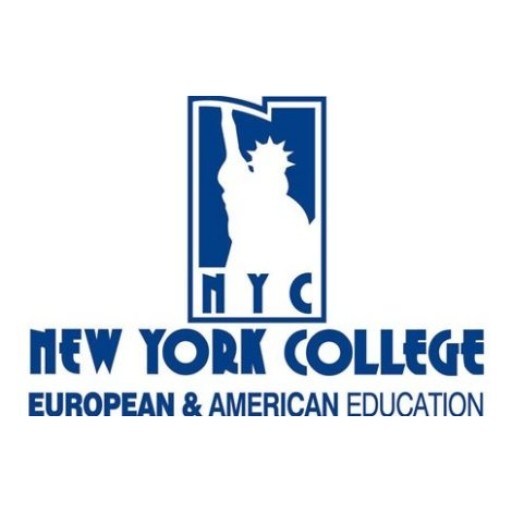Photos of university / #kansasstateuniversity
The Bachelor of Science in Human Nutrition at Kansas State University offers students a comprehensive education in the science of human nutrition, health, and wellness. This program is designed to prepare students for careers in nutrition education, community health, clinical settings, food industry, research, and graduate studies. Throughout the coursework, students will explore the fundamental principles of nutrition science, including dietary guidelines, nutrient metabolism, food safety, and the role of nutrition in disease prevention and management. The program emphasizes a strong foundation in biological sciences, chemistry, and physiology, ensuring graduates have the scientific knowledge necessary to understand the complex interactions between diet and health. Students will also develop skills in assessment, counseling, and public health strategies to promote healthy eating habits among diverse populations. The curriculum includes coursework in food science, microbiology, community nutrition, dietetics, and research methods, providing students with a well-rounded educational experience. Opportunities for hands-on learning include labs, internships, and community outreach programs, allowing students to apply their knowledge in real-world settings. Students are encouraged to participate in research projects and extracurricular activities that enhance their understanding of nutrition and health issues. The program also prepares students for advanced education or careers in dietetics, nutrition consulting, or public health initiatives. The faculty members are experienced professionals dedicated to mentoring students and advancing the field of nutrition through research and community engagement. Upon graduation, students are equipped to contribute meaningfully to improving nutritional health and promoting wellness at individual and community levels. With a focus on science-based knowledge and practical skills, the Kansas State University Bachelor of Science in Human Nutrition aims to prepare graduates for a successful career in the dynamic and growing field of nutrition and health sciences.
The Bachelor of Science in Human Nutrition at Kansas State University is a comprehensive program designed to equip students with foundational knowledge and practical skills in the field of human nutrition and dietetics. The curriculum integrates coursework in biological sciences, food science, and human physiology, providing a well-rounded understanding of how nutrients impact human health and development. Students will explore topics such as nutrient metabolism, community nutrition, medical nutrition therapy, and food safety, preparing them for careers related to nutrition counseling, public health, and food industry sectors. The program emphasizes evidence-based practices and encourages the development of critical thinking skills essential for evaluating nutrition information and research. Practical experiences, including internships and community outreach projects, are incorporated to ensure students gain real-world applications of their knowledge. Graduates of this program are well-prepared to pursue advanced degrees or certifications in dietetics and nutrition, or to enter the workforce in roles that promote health and wellness in various populations. Kansas State University's Human Nutrition program fosters an innovative learning environment with access to state-of-the-art laboratories and resources. Students benefit from dedicated faculty who are experts in their fields and committed to mentoring future professionals. By completing this program, graduates will be positioned to contribute meaningfully to improving public health, developing nutritional policies, and advancing scientific research in nutrition and dietetics. Overall, the program aims to produce well-informed, ethically conscious nutrition professionals who are ready to meet the evolving needs of individuals and communities through evidence-based intervention strategies and leadership in the field of human nutrition.
Program Requirements for Bachelor of Science in Human Nutrition at Kansas State University:
To complete the Bachelor of Science in Human Nutrition, students must fulfill a combination of general education requirements, major coursework, and elective credits. The general education component includes courses in communication skills, humanities, social sciences, mathematics, and sciences, ensuring a well-rounded academic foundation. Specifically, students are expected to complete credits in Composition, Arts and Humanities, Social Sciences, Mathematics, and Biological Sciences, as outlined by the university's core curriculum.
Within the major, students are required to complete foundational courses such as Introduction to Human Nutrition, Principles of Food Science, Lifecycle Nutrition, and Community Nutrition. These courses provide core knowledge in the physiological and psychological aspects of nutrition, dietary assessment, food systems, and nutritional interventions. Additionally, students must undertake courses in biochemistry and physiology to understand nutrient metabolism and human body functions thoroughly.
Advanced coursework includes Nutritional Assessment, Medical Nutrition Therapy, Public Health Policy, and Food Safety. These courses are designed to prepare students for careers involving clinical, community, and public health nutrition. Students are also encouraged to participate in experiential learning opportunities such as internships, research projects, or supervised practical experiences to apply their knowledge in real-world settings.
Elective courses allow students to explore specialized areas such as sports nutrition, dietetics, global nutrition, or food policy, enabling tailored academic paths aligned with career goals. To graduate, students must accumulate a minimum total of credited hours, typically around 120-130 semester credits, including all required coursework and electives.
Furthermore, students aiming for certification as registered dietitians should complete specific coursework and supervised practice hours, as mandated by accrediting bodies. The program emphasizes ethical, cultural, and professional standards, preparing graduates for diverse careers in nutrition and dietetics or for advanced study in related fields.
In summary, the program's requirements encompass completing general education and major core courses, obtaining practical and experiential learning credits, and fulfilling minimum credit hours, all aimed at equipping graduates with comprehensive knowledge and skills in human nutrition.
The Human Nutrition program at Kansas State University offers a variety of financing options to support students throughout their studies. Undergraduate students enrolled in the program can take advantage of federal financial aid programs such as Pell Grants, Federal Supplemental Educational Opportunity Grants (FSEOG), and federal student loans including Direct Subsidized and Unsubsidized Loans. Eligibility for these programs depends on the student's financial need and other criteria established by the federal government. Kansas State University also participates in the Federal Work-Study program, allowing students to earn funds through part-time employment on or off campus, which can help offset educational expenses.
In addition to federal aid, the university offers merit-based scholarships to incoming and current students to recognize academic achievement, leadership qualities, and potential contributions to the university community. Some scholarships are specifically targeted toward students pursuing degrees related to health sciences or nutrition, providing additional financial support for those fields. Kansas State University also provides departmental scholarships for students in the Human Nutrition program, which are awarded based on academic performance, community involvement, and financial need.
Many students finance their education through a combination of savings, family support, private loans, and work opportunities. Private loan options are available through banks and other lenders, offering additional borrowing capacity for students who require it. Kansas State University’s financial aid office provides comprehensive counseling to help students explore all available options, complete necessary applications, and develop manageable repayment strategies after graduation.
Students are encouraged to complete the Free Application for Federal Student Aid (FAFSA) annually to determine their eligibility for federal and state aid programs. The university also offers financial planning services to assist students in budgeting, understanding the costs associated with their education, and planning for future financial stability. Overall, the financing studies for the Human Nutrition program are designed to be as accessible as possible, helping students focus on their academic and professional goals without undue financial burden.
The Human Nutrition program at Kansas State University offers students a comprehensive education in the science of nutrition and its impact on human health. This program is designed to prepare students for careers in various fields related to nutrition, including dietetics, public health, research, and education. The curriculum covers a wide range of topics such as nutritional biochemistry, physiology, community nutrition, clinical nutrition, food sciences, and policy. Students have opportunities to engage in hands-on learning through laboratories and internships, gaining practical skills that are essential for professional success.
The program emphasizes the importance of evidence-based practice and encourages students to develop critical thinking and analytical skills. Kansas State University is accredited by the Accreditation Council for Education in Nutrition and Dietetics (ACEND), ensuring that the curriculum meets national standards for dietetics education. Graduates of the program are eligible to pursue credentials such as the Registered Dietitian Nutritionist (RDN) credential upon completing the required supervised practice and examination.
Research plays a significant role within the program, with faculty members actively involved in diverse research areas including obesity, metabolic diseases, pediatric nutrition, and food safety. The university’s facilities provide students with access to advanced laboratories and resources that support their academic and research pursuits. In addition to academic coursework, students are encouraged to participate in seminars, workshops, and community outreach programs to broaden their understanding of nutrition issues affecting populations.
Kansas State University also offers specialized tracks within the Human Nutrition program, such as Pre-Dietetics, Nutrition and Exercise Science, and other concentration areas, allowing students to tailor their education to their specific career goals. The program supports a strong foundation for students wishing to pursue graduate studies or professional certifications.
Finally, the university fosters a collaborative learning environment with faculty dedicated to mentorship and student success. Career services and professional development opportunities help graduates transition into the workforce, whether in clinical settings, research institutions, government agencies, or private industry. Overall, the Human Nutrition program at Kansas State University prepares students to become knowledgeable and ethical professionals committed to improving health through nutrition.









